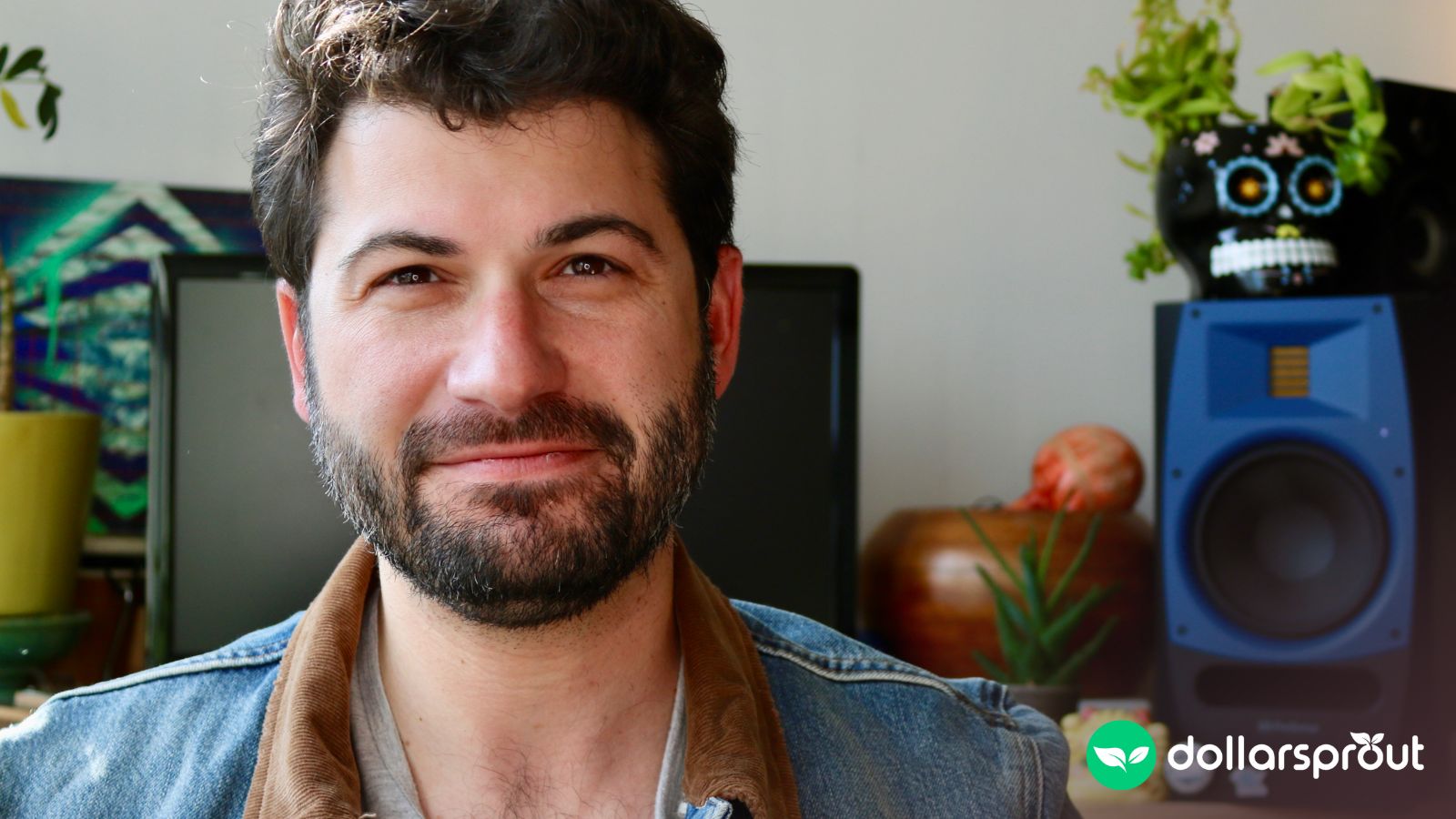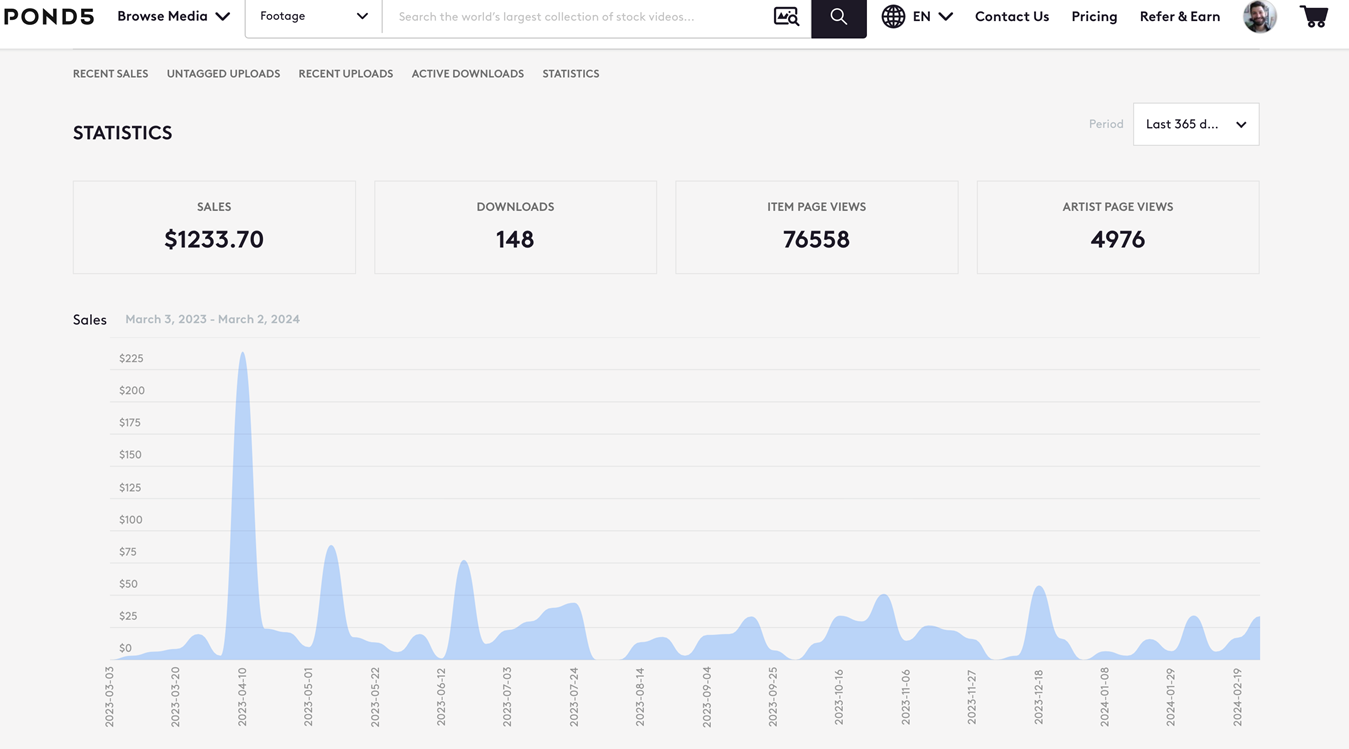How One Lawyer Made $10,000 Selling Stock Music
Our readers always come first
The content on DollarSprout includes links to our advertising partners. When you read our content and click on one of our partners’ links, and then decide to complete an offer — whether it’s downloading an app, opening an account, or some other action — we may earn a commission from that advertiser, at no extra cost to you.
Our ultimate goal is to educate and inform, not lure you into signing up for certain offers. Compensation from our partners may impact what products we cover and where they appear on the site, but does not have any impact on the objectivity of our reviews or advice.
A lawyer by day, Evan Oxhorn turned his passion for music into a profitable side hustle, earning $200 to $300 a month creating and selling stock music.

SAN DIEGO, CA — In the vast landscape of side hustles and moonlighting gigs, the tale of a lawyer by day, stock music creator by night, strikes a harmonious chord of creativity and enterprise.
Armed with a passion for music and a drive that rivaled his legal ambitions, Evan Oxhorn transformed what could have been mere digital dust on a hard drive into a symphony of success, with tracks lighting up TV shows and enriching scenes watched by millions.
Without the need for grand investment — starting simply with a basic home setup — he carved out a place in a niche that pays in both financial returns and personal satisfaction.
Garnering $200 to $300 per month in music royalties, Oxhorn’s foray into the world of stock music amassed over $10,000 in his first three years, illustrating the potential of music licensing as a rewarding side hustle.
From Legal Documents to Musical Scores
Embarking on a journey from the structured world of law to the creative realm of music, Oxhorn — now, colloquially, the Stock Music Musician — found himself at a crossroads.
“I had been a lifelong musician, but as I graduated from law school in 2012 and began my legal career, it became increasingly difficult to find the time to play in a band. I had all these songs on my hard drive and nothing to do with them, and I started to get depressed that no one would ever hear them,” shared Oxhorn.
This emotional low sparked a transformation, leading him to research the world of music licensing, a domain where with luck (and skill) your songs can be heard by millions of people without having to keep a social media presence or by playing gigs in dive bars.
“What I loved about it was all I had to focus on was writing and recording the songs. The music library would then focus on marketing and handling the transactions.”
The thrill of hearing his compositions on shows like Real Housewives of the Potomac and 90 Day Fiancé underscores the success of his musical endeavor. “It’s such a cool feeling to actually hear your song being used in a show!”
Building a Home Studio
Transitioning into music licensing required little initial investment, given the pre-existing home recording setup.
“A musician could easily build a usable home recording studio for a few hundred dollars,” he notes, underscoring the accessibility of this side hustle.

Over time, reinvestment into quality equipment has been key, with current earnings from music licensing at “$200 to $300 a month.”
Related: 20 Low-Cost Online Business Ideas
Mixing, Mastering, and Moving Forward
Mastering the art of mixing presented a significant challenge, met with dedication and continuous learning.
“One of the biggest challenges was learning how to mix professional-sounding music,” reflected Oxhorn.
A challenge he overcame by taking multiple online courses on music production, like Mix with the Masters and Recording Revolution, as well as watching a lot of YouTube tutorials.
Additionally, he recommended learning how to use a Digital Audio Workstation (DAW) “like Ableton, Pro Tools, or Logic so you can make your music quickly and efficiently.”
“I do not think it matters which DAW you use, just as long as you feel comfortable using it,” shared Oxhorn.
His music production journey has been filled with milestones, like an unexpected moment during his first year of experimenting when Comcast started using one of his songs as a background song for their streaming movie menu. “I randomly came across it flipping through the channels and totally freaked out. I thought that my wife had somehow hit play on my computer or something,” joked Oxhorn.
The surprise of discovering his work in such an unexpected place was a memorable highlight. His sage advice to newcomers: “Finish your songs! They don’t need to be perfect – and they never will be”; a point he frequently emphasizes on his full circle, tutorial-laden, YouTube channel.
Related: How This Teacher Turned YouTuber Makes $40,000 a Month
Juggling Legal Responsibilities with Music
Balancing a demanding legal career with a burgeoning music production side hustle required strategic time management.
“My main driver was wanting to get my music heard but not having the time or energy to do all of the other things it takes to be in a band. I knew that even just releasing my music for free on Spotify would not lead to an audience without tons of promotion,” shared Oxhorn.
That’s when he realized he could have someone else do the work of promoting the songs and getting them heard. “The great thing about the way music licensing works is that the library takes care of all of the promotion of your songs. The hustle part involves reaching out to new libraries to see if they are accepting new composers,” advised Oxhorn.
Despite the solitary nature of music licensing, compared to the collaborative dynamics of a band, the satisfaction derived from creative output fuels his continued passion. “For me, I tend to find an hour here or an hour there to record or mix or come up with an idea.”
The Path Ahead
Looking to the future, the goal is to consistently expand his musical portfolio, aiming to “get 20-40 new songs into libraries each year.”
This approach not only promises increased earnings but also the joy of seeing his music enrich a variety of media.
Oxhorn closed by saying “As my songs get placed into more TV shows – and those shows have re-runs and are streamed – my back catalog of royalties keeps on growing,”
Related:






